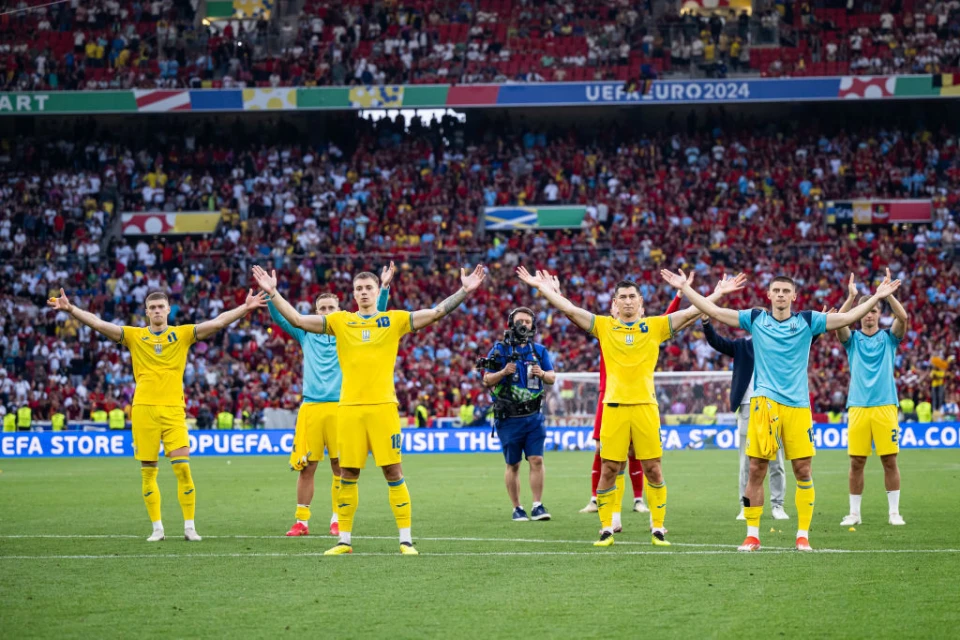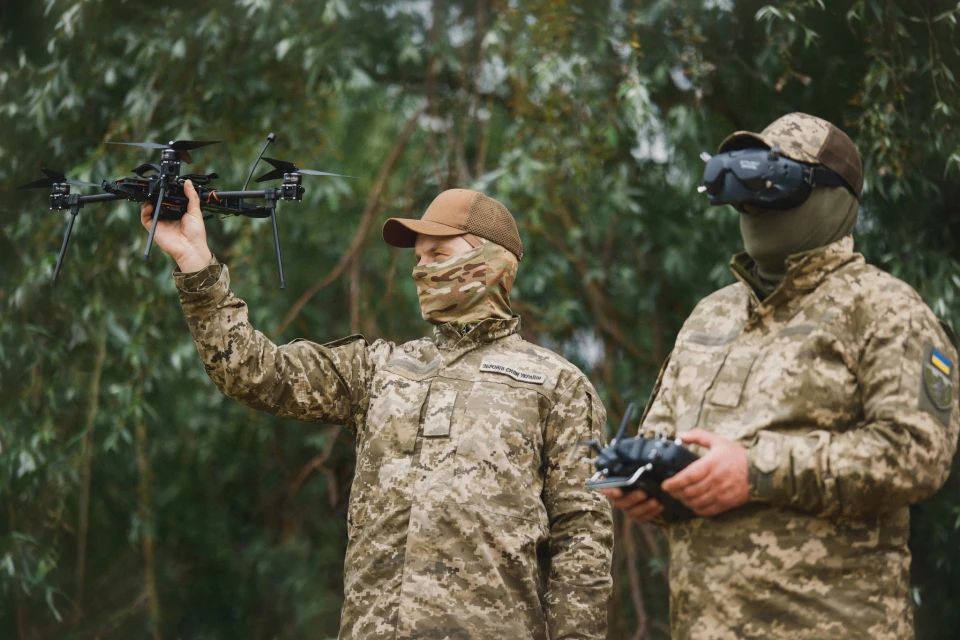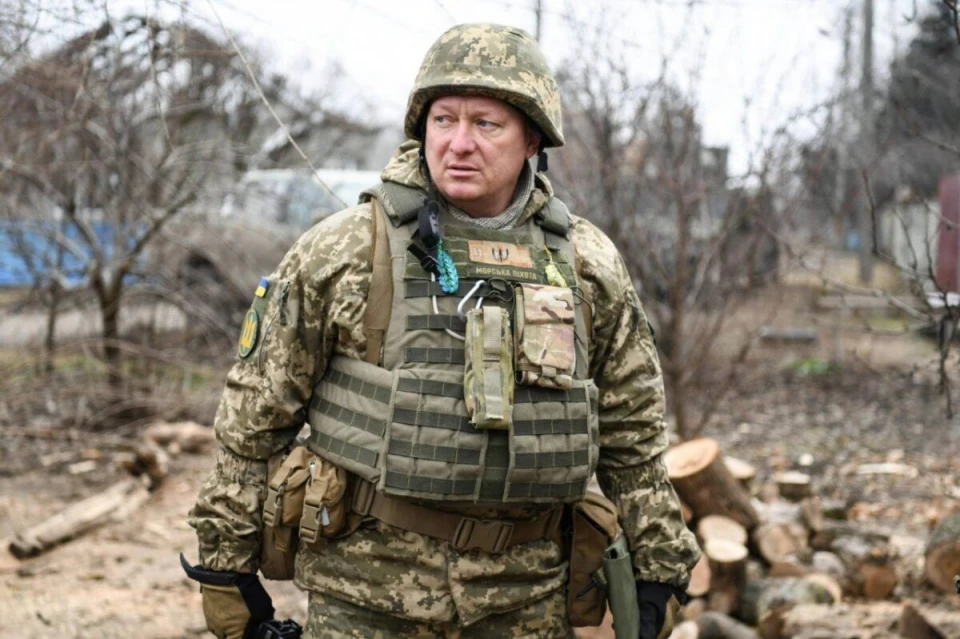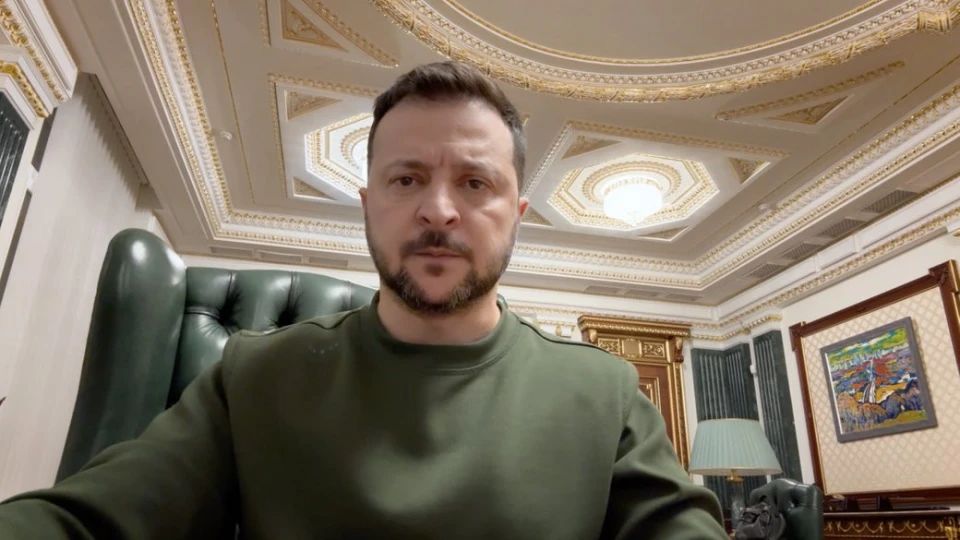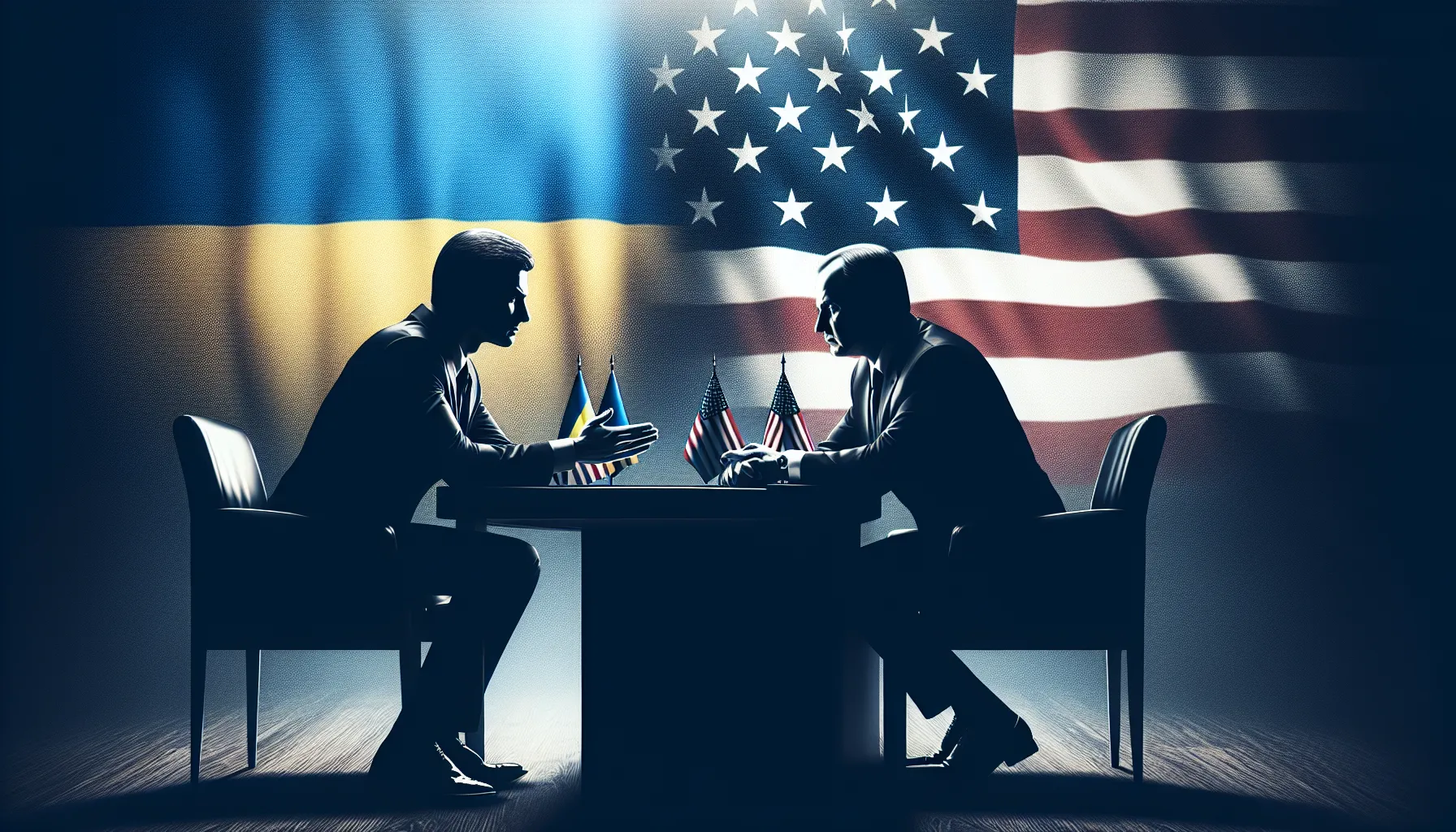Ukraine sees split between Zelensky's Office and the military – The Telegraph
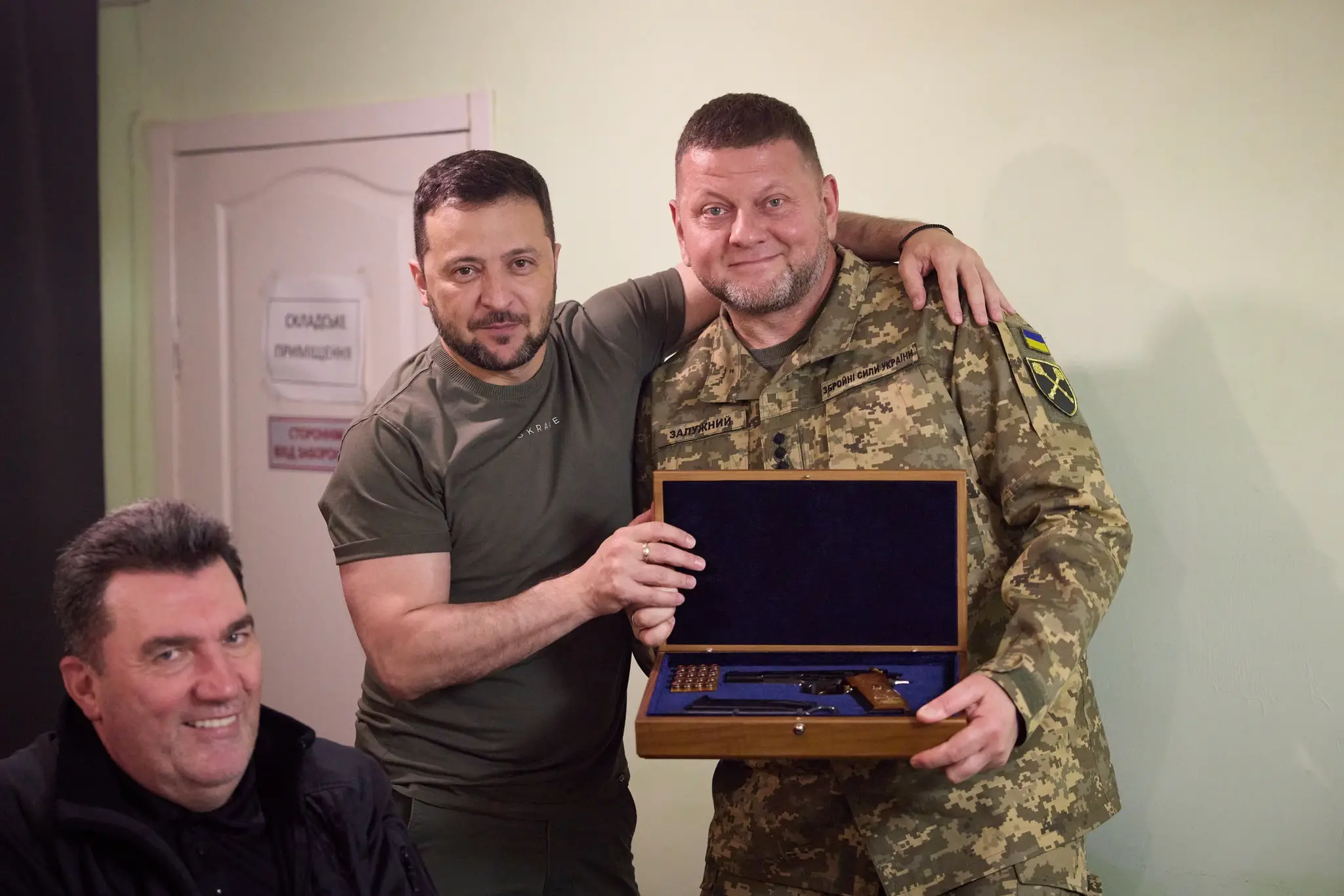
Ukrainian President Volodymyr Zelenskyy's team is unhappy with Zaluzhnyi's article in The Economist
Tensionsbetween Ukraine's political and military leadership, which are usually keptsecret, have recently spilled into the public domain.
This wasreported by the British edition of The Telegraph.
Thepublication recalled that on 5 November Volodymyr Zelenskyy said with fury inhis eyes in an interviewwith the US TV channel NBC: "We (Ukraine. – Ed.) are not ready to giveour freedom to this f*****g terrorist Putin". And specified that thisstatement was a rare display of public anger by the Ukrainian leader, whoseemotions are usually limited to solemn meetings with soldiers wounded in thefight against the Russian occupation forces.
The mediaoutlet recalls that this came after months of heavy losses during the ArmedForces counter-offensive, which many in Ukraine have labelled a stalemate.Against this background, there were reports that Kyiv was allegedly urged toconsider the possibility of peace talks with Moscow.
Thepublication does not rule this out as a sign that even Volodymyr Zelenskyy, whohas stoically led Ukraine's defence against Russia since the start of thefull-scale invasion last February, "may be cracking".
Thejournalists also drew attention to several emotional statements that theUkrainian president has made recently.
"Zelensky'sfirst reaction was to call for an end to the political fighting, but he alsopublicly reprimanded his commander-in-chief Valerii Zaluzhnyi, who wrote in acolumn for the Economist that the fighting had reached a 'stalemate,'" thepublication noted.
Inparticular, the head of state said that he did not consider the situation atthe front to be stalemate. And on 6 November, he addressed Ukrainians with the words: "Get together and do not rest; do not drown in internalstruggles or other problems."
Thepublication notes that although Zelensky initially called for an end to politicalstrife, he later issued a "public reprimand" to Valerii Zaluzhnyi,the commander-in-chief of the Ukrainian Armed Forces, for his message about thewar's transition to "positional" status.
Toppresidential aides also joined the verbal confrontation, the Telegraphcontinues, insisting that General Zaluzhny's statement of stalemate only"makes the aggressor's job easier" and creates "panic"among Kyiv's Western allies.
"Ittook 20 months of war for a split between the military and civilian leadershipto emerge, despite previous statements about the dispute regarding the overlyoptimistic views of politicians. Ukraine's leadership is convinced that the warwith Russia has reached a stalemate, and this is causing particulardifficulties," the publication said.
Thepublication noted that over the past five months of fighting, Ukraine hasretaken only a tiny part of its territory, while Russia continues to control afifth of the country's territory. Officials fear that the stalemate could leadWestern allies to increase pressure on Kyiv to hold peace talks that wouldforce it to give up some territory in exchange for an end to the war.
TheTelegraph suggests that Western countries are tired of the war and thisthreatens to reduce military support to Kyiv. As an example, the publicationrecalled how the US is cutting military aid packages to stretch funds, asCongress refuses to allocate more money for Ukraine.
Meanwhile,General Valerii Zaluzhnyi's article in The Economist, may have prompted apublic rebuttal by Volodymyr Zelenskyy and his Office, as the AFUcommander-in-chief is seen as a potential political rival to the incumbentpresident, although Zaluzhnyi has not announced any intentions to lead thecountry or run for office.
"Formessaging about the threat of positional warfare in the Economist, the generalreceived a "low blow" from the Office of the President – DefenceMinister Rustem Umerov dismissedZaluzhny's deputy, Major-General Viktor Khorenko, from his post as head ofthe Special Operations Forces. At the same time, Khorenko said that he did notknow why he was fired and learnt about it from the media, and added thatGeneral Zaluzhny was also surprised by the decision and "could not explainit," the British publication writes.
TheTelegraph adds that the newly appointed Ukrainian Defence Minister RustemUmerov recommended that General Zaluzhny be dismissed, but could not explainwhy, as this would "give an excuse to the enemy to weaken Ukraine".
Thepublication also cited the views of Solomiya Bobrovska, a member of theVerkhovna Rada's Defence and Intelligence Committee from the Golos party, whosaid in an interview with TheNew York Times : "Theshelling looks like political interference in the Armed Forces and their combatoperations."
FormerUkrainian Deputy Prime Minister Pavlo Rozenko also criticised Khorenko'sdismissal.
"Youmade a very big mistake when you made this performance behind Zaluzhny's back.And it is precisely such mistakes that are weakening Ukraine in this war... Itis very unfortunate that this situation is dominated by politicalintrigue," he said.
However,The Telegraph concluded that despite all the conflicts, Volodymyr Zelenskyytried to portray the unity of Ukraine's political and military leadership."Our victory is within reach. We will achieve it if we are all focused onthis goal," the head of state said.
Ukraine's peace talks with Russia
Recently,the Western media have been lobbying for the view that the war in Ukraine hasreached a dead end, that it is impossible to liberate the occupied territoriesby military means, and that only peace talks between Kyiv and Moscow can stopthe war.
On 4November, the US TV channel NBC reported that the US and theEuropean Union were allegedly discussing peace talks between Ukraine andRussia, as "the conflict has reached a deadlock". In exchange for thetalks, President Zelenskyy is being offered some NATO security guarantees, evenwithout officially joining the Alliance.
Instead,Ukraine's National Security and Defence Council Secretary Oleksiy Danilov saidthat it was impossible to negotiate with Russia to end the war. In hisopinion, this topic is being promoted in the media by the Kremlin, as it wantsto sign peace agreements to build up its forces and move on to the next phaseof the war.

